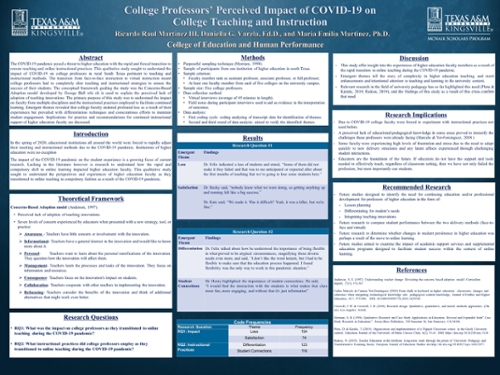The COVID-19 pandemic posed a threat to higher education with the rapid and forced transition to remote teaching and online instructional practices. This qualitative study sought to understand the impact of COVID-19 on college professors in rural South Texas pertinent to teaching and instructional methods. The transition from face-to-face instruction to virtual instruction meant college professors had to completely alter teaching and instructional strategies to ensure the success of their students. The conceptual framework guiding the study was the Concerns-Based Adoption model developed by George Hall which is used to explain the perceived lack of adoption of teaching innovations. The primary purpose of this study was to understand the impact on faculty from multiple disciplines and the instructional practices employed to facilitate continued learning. Emergent themes revealed that college faculty endured profound loss as a result of their experiences, but prevailed with differentiation techniques and conscientious efforts to maintain student engagement. Implications for practice and recommendations for continued instructional support of higher education faculty are discussed.
Faculty Mentors: Dr. Daniella Varela and Dr. Maria Martinez
College of Education and Human Performance


